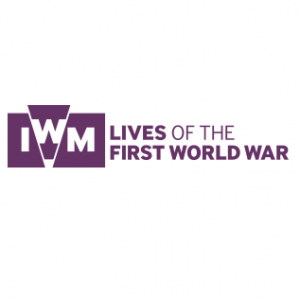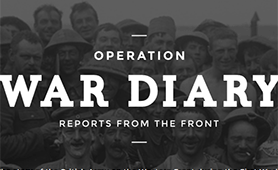The Centenary of the First World War provides an opportunity to build on the renewed popular interest in the war to collaborate and share expertise. Here are some of the initiatives that are offering such chances.
Lives of the First World War
 The Lives programme is the Imperial War Museum’s effort to build a permanent digital memorial to the Lives of the First World War. The site offers people the opportunity to work with the IWM to piece together more than 8 million life stories, share them, and enable IWM to save them for future generations.
The Lives programme is the Imperial War Museum’s effort to build a permanent digital memorial to the Lives of the First World War. The site offers people the opportunity to work with the IWM to piece together more than 8 million life stories, share them, and enable IWM to save them for future generations.
Each individual whose contribution to the First World War is recorded in official documents will have a personal Life Story page. Information about each person and their wartime experiences can be connected to Life Stories by members of the public who access the site.
Members can:
- Link together evidence relating to the same person, using records from museums, libraries and archives across the world.
- Add references to sources they have discovered elsewhere.
- Upload digital images of their own precious family mementoes.
- Include family stories and personal knowledge.
- Group together individuals they are interested in by creating your own Community
As more and more people connect facts to Life Stories, the project can begin to piece together each individual’s life story.
Operation War Diary
Operation War Diary is an effort to tag, classify and understand original documents from the First World War.
It brings together original First World War documents from The National Archives, the historical expertise of IWM and the power of the Zooniverse community.Working together, they and their volunteers will make previously inaccessible information available to academics, researchers and family historians worldwide, leaving a lasting legacy for the centenary of the First World War.
Data gathered through Operation War Diary will be used for three main purposes:
- to enrich The National Archives’ catalogue descriptions for the unit war diaries,
- to provide evidence about the experience of named individuals in IWM’s Lives of the First World War project
- to present academics with large amounts of accurate data to help them gain a better understanding of how the war was fought
All of the data produced by Operation War Diary will eventually be available to everyone free of charge- a lasting legacy and a rich and valuable introduction to the world of the War Diaries.
UK Web Archive –First World War Special Collection
 The British Library archives the whole of the UK web domain under the terms of the Non-Print Legal Deposit Regulations 2013. This is done in an automated way, typically once a year.
The British Library archives the whole of the UK web domain under the terms of the Non-Print Legal Deposit Regulations 2013. This is done in an automated way, typically once a year.
In addition, their Special Collections are groups of websites, usually more than fifty and less than four hundred, brought together on a particular theme. These have been especially compiled by curators and other subject specialist to make useful and interesting Special Collections.
The First World War Centenary 2014-18 is a Special Collection that gathers suitable websites from the centenary period.
The Special Collection is open to sites that are issued from a .uk or other UK geographic top-level domain or where part of the publishing process takes place in the UK.
Sites concerning film and recorded sound where the audio-visual content predominates (but, for example, web pages containing video clips alongside text or images are within scope), private intranets and emails and personal data will not be included.
Site owners can nominate their site for inclusion here
 The Lives programme is the Imperial War Museum’s effort to build a permanent digital memorial to the Lives of the First World War. The site offers people the opportunity to work with the IWM to piece together more than 8 million life stories, share them, and enable IWM to save them for future generations.
The Lives programme is the Imperial War Museum’s effort to build a permanent digital memorial to the Lives of the First World War. The site offers people the opportunity to work with the IWM to piece together more than 8 million life stories, share them, and enable IWM to save them for future generations.
 The British Library archives the whole of the UK web domain under the terms of the Non-Print Legal Deposit Regulations 2013. This is done in an automated way, typically once a year.
The British Library archives the whole of the UK web domain under the terms of the Non-Print Legal Deposit Regulations 2013. This is done in an automated way, typically once a year.